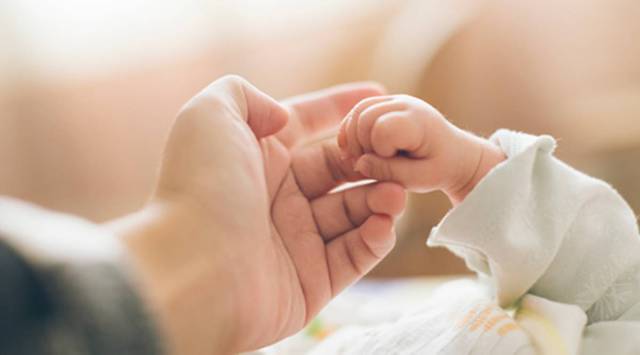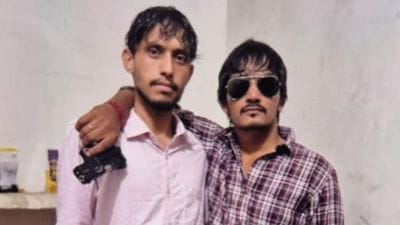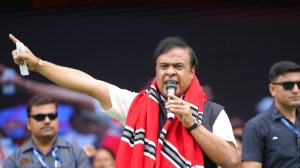‘Don’t let nationalities come in way of mother and infant’: HC protects Russian woman from forcible exit from India
Idea of governance considering all citizens suspects not palatable, HC says
 The plea was filed by the woman, her current husband, who is also from India, their infant daughter, and the minor son born from her previous marriage to the Indian citizen, challenging the exit permit issued to her by the police. (File photo)
The plea was filed by the woman, her current husband, who is also from India, their infant daughter, and the minor son born from her previous marriage to the Indian citizen, challenging the exit permit issued to her by the police. (File photo) The Bombay High Court on Monday, calling out the Centre’s apathy in dealing with a plea said the nationality of a nursing mother should not come in the way of her and her infant. The plea was filed by a Russian woman (who has an infant daughter from her marriage with an Indian man) against the order issued to her to leave the country, as her OCI (overseas citizen of India) status was no longer valid.
Seeking a humane approach from authorities in special circumstances, the bench also said, that “the idea of governance that all citizens are considered suspect is not palatable.”
A division bench of Justice Gautam S Patel and Justice Neela K Gokhale was hearing a plea by a 38-year-old Russian woman, married to an Indian man, raising an important question under Section 7A (3) of the Citizenship Act. The plea was filed by the woman, her husband, their infant daughter and the minor son born even before she arrived in India, challenging the exit permit issued to her by police on Home Ministry’s instructions.
The Russian woman had first married an Indian citizen, whereby she had obtained an X1 visa and then an OCI (overseas citizen of India) card. The couple separated and the petitioner woman had consented to divorce proceedings. She also had a son from the marriage, even before she arrived in India.
After her divorce, she married the petitioner man and they have a six-month old daughter. In January, the woman was asked to leave the country by March 24 through an impugned order. She had, meanwhile on March 5, applied for OCI status based on her second marriage.
Pending the hearing of her plea, the woman had sought direction to the police to extend the period of the exit permit, and not allow forcible exit from the country. The court had granted interim relief and extended the same from time to time.
The bench had noted that the petition raised questions about spouses of foreign origin of citizens of India, the right to apply for OCI cards, X category visa and consequences when marriages are dissolved.
On Monday, advocate Rui Rodrigues for the Centre submitted an affidavit in reply, stating that the impugned order was as per statutory requirements. The Centre said that there were no sufficient grounds to show special circumstances by which the woman can apply for citizenship.
“Just be right, sensible and have a humane approach to the woman and child. Don’t let nationalities come in the way of this. We won’t allow separation even for a minute. If this is not a special circumstance for the mother, then there is nothing (in your argument),” Justice Patel said.
After Rodrigues argued that there had to be subsistence of marriage to continue her OCI status, the bench lamented as to “why any government would decide to penalise its own citizens” because they have married a foreigner… “it is like the government is saying you dare not marry a foreigner. We will not blind ourselves from the fact that we have a mother with a 6-month old child before us. We are not letting you sunder this family.”
When Rodrigues sought to file an additional affidavit to spell out its stand, Justice Patel said, “Do not spin this… Find a solution. We can’t accept your answer. We are telling you that you are wrong. There are indeed special circumstances. She is not asking for continuation of OCI after divorce. She has married another Indian citizen. You are saying that her OCI was in first marriage.. and therefore it (OCI status) cannot continue. Your rules are difficult for us to understand. You are punishing an Indian citizen (the man) and his daughter also. We are trying to say something in the interest of the petitioner and respondent to strike a balance. We find this action disproportionate. Your idea of governance that all citizens are suspects is not palatable to us.”
When the Centre said it will be a temporary separation, the bench said that the Centre’s order says the infant’s mother “must leave the country and be separated from husband and minor daughter. You can’t do temporary seperation.You are not the authority to interfere in personal relations of parties.”
The bench continued the earlier interim relief granted to the petitioner, and sought an additional affidavit by the Centre by August 6 and rejoinder by the petitioner by August 11. It said the matter will be heard finally for disposal on August 21.








